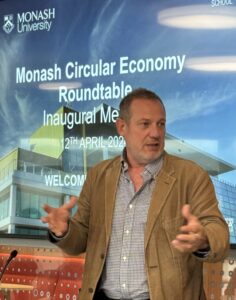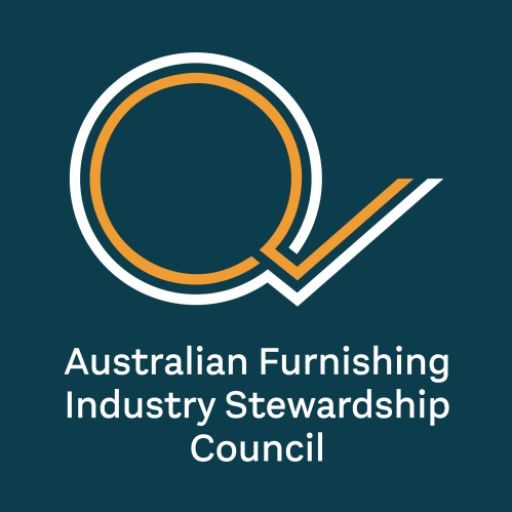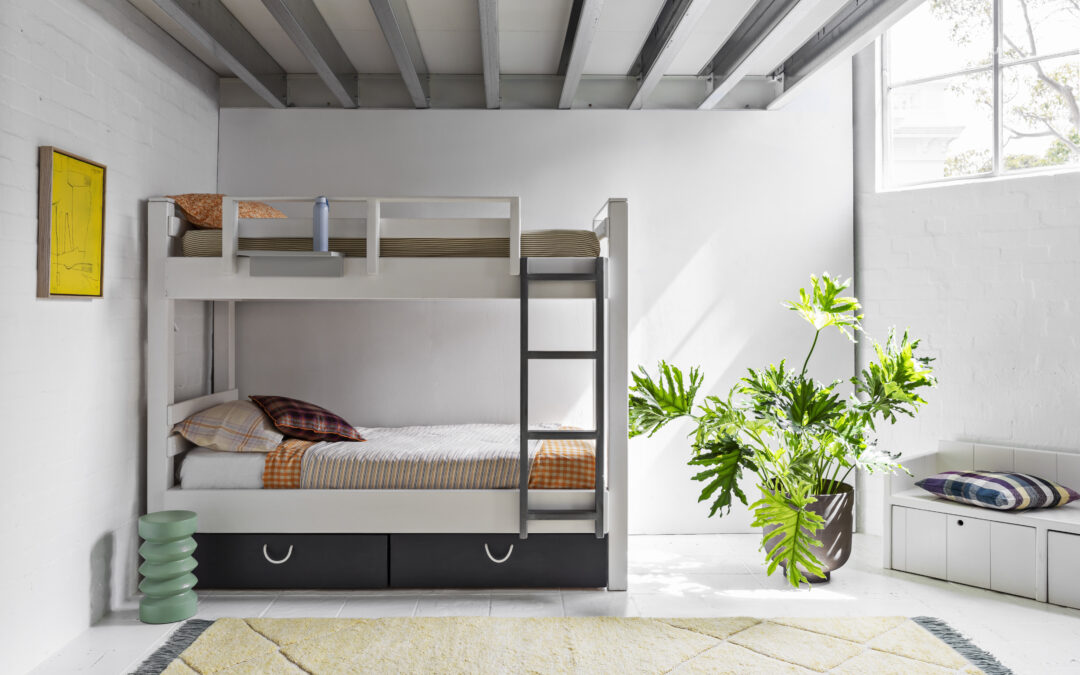 Hans van Schoonhoven, founder of House of Orange, is a true sustainability trailblazer in Australian furniture manufacturing. As the inaugural member of the Australian Furnishing Industry Stewardship Council (AFISC), Hans embodies the principles of circularity and environmental responsibility, setting a high bar for industry leadership.
Hans van Schoonhoven, founder of House of Orange, is a true sustainability trailblazer in Australian furniture manufacturing. As the inaugural member of the Australian Furnishing Industry Stewardship Council (AFISC), Hans embodies the principles of circularity and environmental responsibility, setting a high bar for industry leadership.
A Journey Rooted in Simplicity and Quality
Starting nearly two decades ago, Hans carved a unique path in furniture production by focusing on high-quality materials and simple manufacturing methods. “When we started, I had to find a point of difference. Using really good materials with simple manufacturing allowed us to avoid the pressure of overseas labour cost competition,” Hans explains.
Investing in precision machinery has refined House of Orange’s production, enabling tighter tolerances and simplified assembly. This focus on quality and durability naturally aligned with circular economy practices—even if it wasn’t the initial goal. “Our bunk beds aren’t just beds; they’re designed to be reconfigured as children grow, making them a truly circular product.”
Designing for Longevity, Reuse, and Adaptability
House of Orange’s innovative approach extends beyond manufacturing to a buy-back and refurbishment program. Customers can return components to transform bunk beds into standalone beds, extending the product’s useful life and reducing waste. “The beds are made from solid timber with water-based paints, so refurbishing is straightforward and sustainable,” Hans notes.
He envisions expanding this model into a rent-to-own system, helping young families access quality furniture while maintaining circularity. “Imagine young couples paying a deposit and then small monthly instalments interest-free, ultimately owning a piece of furniture designed to last and adapt to their needs.”
Navigating Challenges: Certification Costs and Market Realities
Hans is candid about the hurdles small manufacturers face, especially the expenses and complexities involved in sustainability certification. “Certification can be a significant financial commitment, which can be daunting for smaller businesses trying to formalise their sustainable practices,” he says. AFISC’s role in providing guidance and support is therefore invaluable.
He also highlights disparities in procurement and market pricing, sharing an example where bespoke timber furniture was significantly more cost-effective than cheaper mass-produced alternatives. “It’s frustrating when public projects pay inflated prices for inferior products, often at taxpayers’ expense.”
AFISC Membership: Formalising Commitment and Building Community
Joining AFISC is a strategic step for Hans to formalise and amplify House of Orange’s sustainability ethos. “After years of doing things organically, I now see the real value in networking and being part of a collective driving industry change,” he reflects.
Hans appreciates that AFISC offers a platform to share experiences, access resources, and advocate for policies that support local manufacturers committed to circular economy principles. “It’s about creating a sustainable future for the furniture industry and ensuring businesses like mine have the support and recognition we deserve.”
A Vision for the Future
Hans’s passion for circular economy goes hand in hand with business resilience and customer value. “Sustainability isn’t just good for the planet—it makes business sense. By wrapping our furniture for delivery in blankets our customers can reuse, we’ve eliminated packaging waste. We’ve switched to biodegradable tapes, and simplified processes—all of which have been wins for us and our customers.”
He remains enthusiastic about evolving rental and refurbishment models that keep furniture in use longer and reduce landfill waste. Hans invites industry partners and innovators to collaborate on solutions that balance environmental responsibility with affordability and practicality.
Hans van Schoonhoven and House of Orange exemplify how circular economy principles can be integrated into successful business models, creating lasting value for customers, communities, and the planet. As AFISC’s first member, Hans leads the way in shaping a sustainable future for Australia’s furniture industry.

